How To Run A Half Marathon Without Training: 6 Tips From Pro Runner
Author:
Unlock your full potential by engaging with our experts and community! Have questions about your fitness journey or looking for expert advice on weightlifting techniques? Don’t hesitate — leave a comment below and Oleksandr Zagrebelnyi will provide a personalized answer and insights to help you reach your goals.
Torokhtiy is reader-supported. Some links are affiliate links, and we may earn a commission at no extra cost to you. See our disclosure page for details.
Perhaps you’ve signed up for the race months before and didn’t have the time to do any running for practice. Running a half marathon without training is probably not the best experience you’ll have, but it is certainly possible. Embarking on such a journey is challenging – the distance can sometimes be exhilarating and daunting.
While training diligently is the norm, the unconventional approach to the half marathon is becoming more popular recently. Due to the busy schedules, not everyone has the time to prepare properly. But that doesn’t beat the feeling of victory you get upon crossing the finish line.
Here, we’ll discuss the half marathon and give the best tips for running a half marathon without training. Stay tuned!
Is It Possible To Run A Half Marathon Without Training? – The first thing you need to do is to find the rear roller bolts (at the back of your treadmill). You’ll need an Allen wrench to tighten or loosen them. After you’re done, make sure to test it before you actually use it.
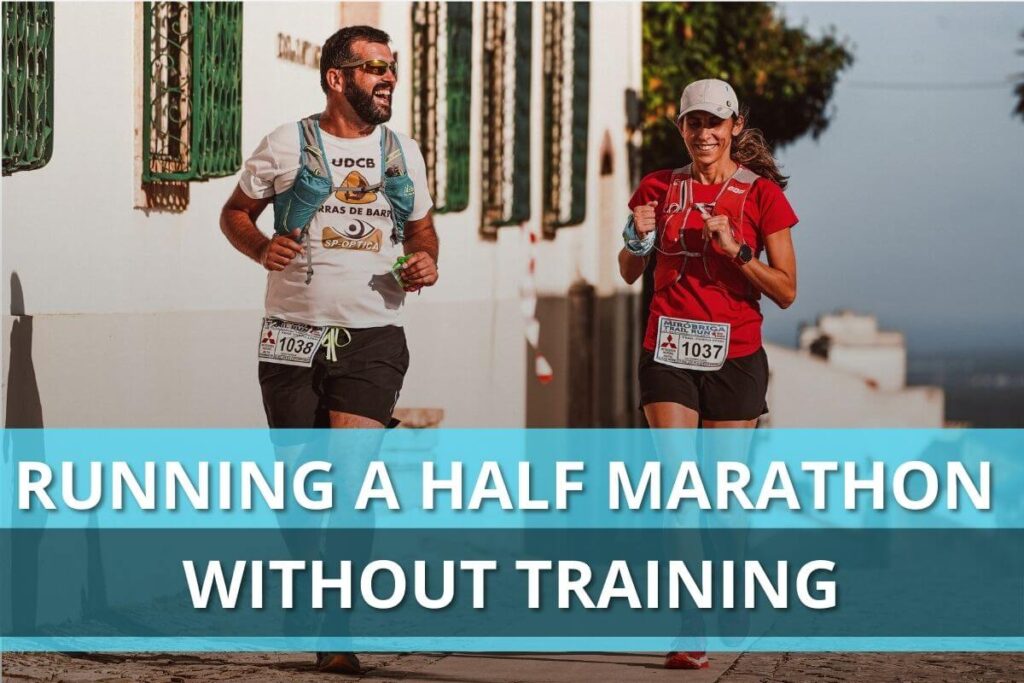
What Is A Half Marathon And How Many Miles It Is?
The half marathon is one of the most popular races among runners because it’s long enough to be challenging but shorter than a full marathon. Also, practicing for it is not as time-consuming and exhausting as training for a full marathon. The half-marathon distance is 13.1 miles or 21.0975 km. That’s exactly half of the full marathon’s distance.
Many people choose to engage in a half marathon, as it attracts both novice and experienced runners. It’s an opportunity for individuals to test their endurance and push their limits in a competitive environment.
The average time for running a half-marathon for males between 20 and 40 years is approximately 2 hours. For women, the average finish time is 2 hours and 20 minutes. The half-marathon requires an average pace of 5:41 minutes per kilometer or 9:09 minutes per mile.
Who Is The Half Marathon Aimed At And Is It Possible To Run It Without Experience And Knowledge?
The half-marathon is the most popular race because it consists of runners of all kinds with different abilities and experience. Starting from beginners up to intermediate, and then expert level, there is a place for everyone.
When asking yourself how hard is it to run a half marathon, the challenge’s intensity isn’t the same when a novice and an expert runner engage in a similar race.
If you’re still wondering can you run a marathon with no training, the answer is here. While running a half marathon without prior experience is technically possible, it’s important to approach it with a realistic mindset and caution.
Not just physical but this challenge requires mental readiness as well. And if you don’t have the proper knowledge of what it takes to run a half marathon, you might struggle to manage any unexpected challenges during the race.
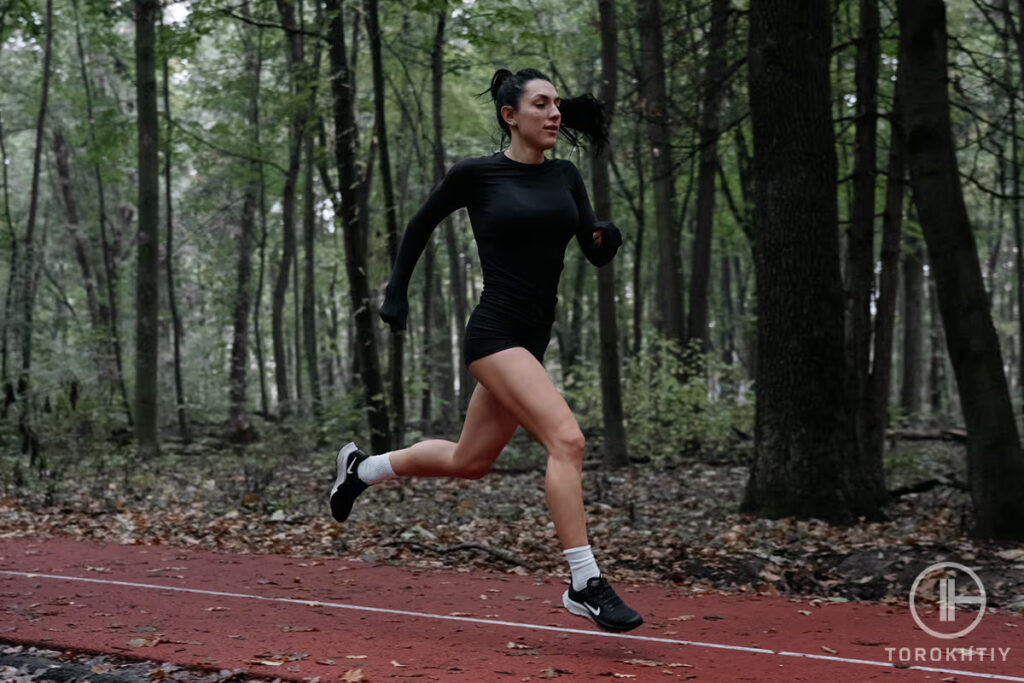
Can Anyone Run A Half Marathon?
The question is, can anyone run a half marathon? Even though it won’t be easy, everyone can do it. However, for beginners, it’s not going to be ideal.
Although walking a half marathon without training and running experience can be exhausting because of the large distance, focusing on taking it easy will increase your chances of success.
First-time runners should not overwhelm themselves due to the risk of injury and the lack of training. As one, listen to your body and try to stay comfortable at your pace. On the other hand, even though experienced runners have the perfect mentality for a half-marathon, they still might find it hard to do it without preparing beforehand.
While experienced runners may have a higher baseline fitness level and an extensive knowledge of running mechanics, the half marathon distance remains demanding on the body.
Despite this, experienced runners stand a bigger chance of running a half marathon without proper training than novice runners.
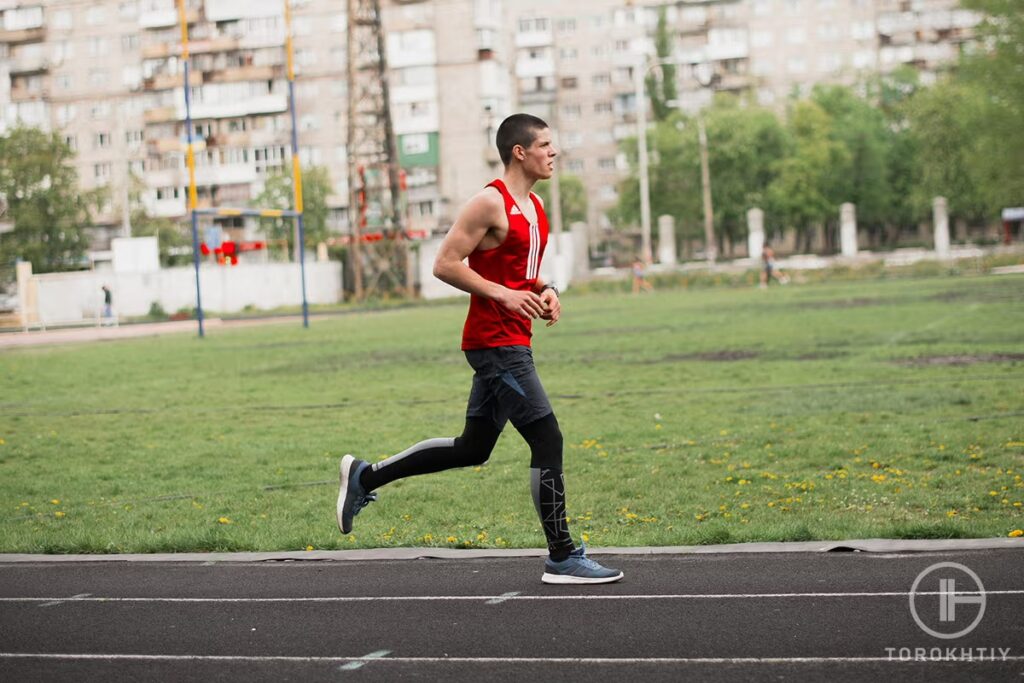
Are There Running Rules For Participating In A Half Marathon?
Certainly, there are general rules and guidelines that participants need to follow when participating in a half-marathon race. While the rules can vary within races and organizations, let’s cover the common ones in a half-marathon.
- Get there early – Even though this should fall under planning, it’s such an important element of the race day that it needs a special mention. You’ll be anxious for the race; don’t cause yourself additional stress with being late.
- Respect the assigned corrals – The concept of assigning corrals puts the faster runners in front and the slower ones behind them. Don’t be one of those people who sneak into the faster corrals and block the runners in that area when the race starts.
- Don’t cause a roadblock – When you and your friends line up more than two, you’re blocking faster runners looking for a way to get past you. Don’t make it harder for them.
- Always pull to the side – If you have to stop or slow down for any reason, pull off to the side, ensuring no one is directly behind you. Then, take your time to regroup because half marathon etiquette requires that you don’t impede or block the runners behind you.
- Be kind to volunteers – Neither race would be successful without the help of the volunteers. These people get you water, get up early, and basically assist the race in any way. Be nice to them.
- Bib and timing chip – You will receive a race bib with a timing chip, which must be attached as instructed. The bib should be visible on your front and not covered.
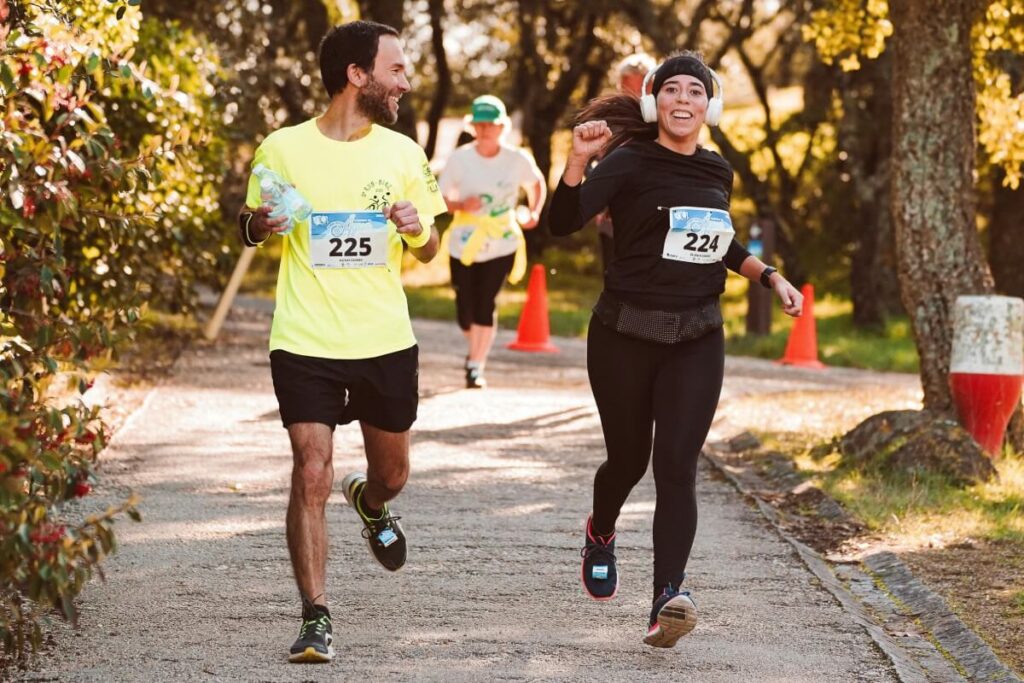
6 Tips For Running A Half Marathon Without Training
After discussing can you run a half marathon without training, it’s time to focus on the actual process. Even if you’ve tried to run 10k without training and you succeeded, remember that this is a much larger distance. And if this is your first marathon, you need all the tips for running a half marathon without training. So, let’s get started!
1. Set Your Goal To Finish Rather Than Run
If you’re still wondering whether can you run a marathon with no training, this is the mentality you need to set. Don’t expect to reach the finish line as the first runner if you’ve not trained properly. The thing that matters is that you’ll get your medal no matter how long it takes you to get to the end. So, don’t push yourself and enjoy the experience.
2. Watch Your Pace
Your pace is the speed you’re moving through the race. Ensure you run or walk at a pace you can sustain for 2 or more hours. The common mistake runners make is starting the race way too fast, which might happen because of the excitement. The most important thing is to focus on your own pace and do the half marathon, no training.
3. Switch Between Running And Walking
The half marathon is 13.1 miles, which is an extremely long distance for you to be running without any prior preparations. You should break the miles into a pattern that will help you pass them more quickly and keep up your endurance.
Try all sorts of patterns to see whatever works well for you. For example, you can run 3 miles and then walk 1. If you’re a beginner and this is your first half-marathon, you can walk during the entire race. You wouldn’t be the only one!
4. Focus On Your Breathing
When speaking of how to run a half marathon without training, remember that paying attention to your breathing is crucial. It’s crucial to your running success as it helps you maintain your endurance and pace. There are certain patterns that may help you here:
- Inhale for 3 steps and then exhale for 2 steps
- Inhale for 2 steps and then exhale for 3 steps
A ratio of inhaling for 2 steps and exhaling for 2 steps is also okay, but if you start breathing at a 2:1 ratio, or 1:1, you’re moving too fast. Avoid this unless the finish line is in your sight.
5. Wear The Right Clothing And Shoes
Wear a pair of shoes that are specifically made for running, ½ to 2 sizes larger than what you normally wear. This will protect your toes by having space between your longest toe and the tip of your shoe. Also, your shoes should have a roomy toe box and sufficient support for the large distance. They shouldn’t rub your feet or put any pressure on any spot.
For running a half marathon without training, always make sure you wear clothing made specifically for running. Fitness clothing, including underwear and socks, is lightweight and dries quickly. On the other hand, everyday cotton clothing takes longer to dry and gets heavier when wet, which slows down your pace.
During your race, ensure everything stays in place to avoid constantly adjusting. Also, consider the temperature and the fact that you will warm up during your run when choosing clothes to wear during the race.
Hoka Bondi 8
- Material: Breathable and supportive mesh upper
- Sole Material: Full-length EVA midsole for maximum cushioning
- Outsole (tread feature): Durable rubber outsole with a unique lug pattern
- Drop: 4mm
- Season: Suitable for all seasons
- Special Features: Exceptional cushioning and comfort
- Size: Available in various sizes
- Type: Maximum cushioning running shoe
If you want excellent running or walking shoes or just footwear you’ll be comfortable in, you can’t go wrong with the Hoka Bondi 8.
It’s been upgraded and now they have lighter, softer materials and a new extended heel design. The heel design gives a super soft, balanced feeling from th emoment your heel hits the ground to when you push off with your toes.
As far as the weight goes, it’s around 10.80 ounces, and the heel drop is 4 mm. They’re not too heavy and the lower drop is a good balance between cushioning and feeling connected to the ground.

The Bondi 8 is focused on cushioning and keeps things simple. There’s a good amount of support without any extra stuff that you don’t really need and that would only jack up the price. Take the rear crash pad, for example – it makes for a soft, smooth ride, which is perfect if you like to run outdoors.
The upper part is made of engineered mesh, which is breathable and keeps your feet cool and dry. The tongue and collar have memory foam and mold to your foot shape. All of these features make the fit snug but flexible, which is exactly what you would want.
The Bondi 8 is eco-friendly because it uses recyclable materials in parts like the mesh and the sockliner. Plus, the shoes are completely vegan, which (if that’s important to you) is nice!
6. Hydrate Through The Race
You don’t need to carry a water bottle or a hydration belt unless you’re running in extremely hot weather. Those are just an additional weight that will slow you down. Also, they are unnecessary because of the regular water stations throughout the race track. And since you won’t be setting personal time records, feel free to slow down to the stations to hydrate.
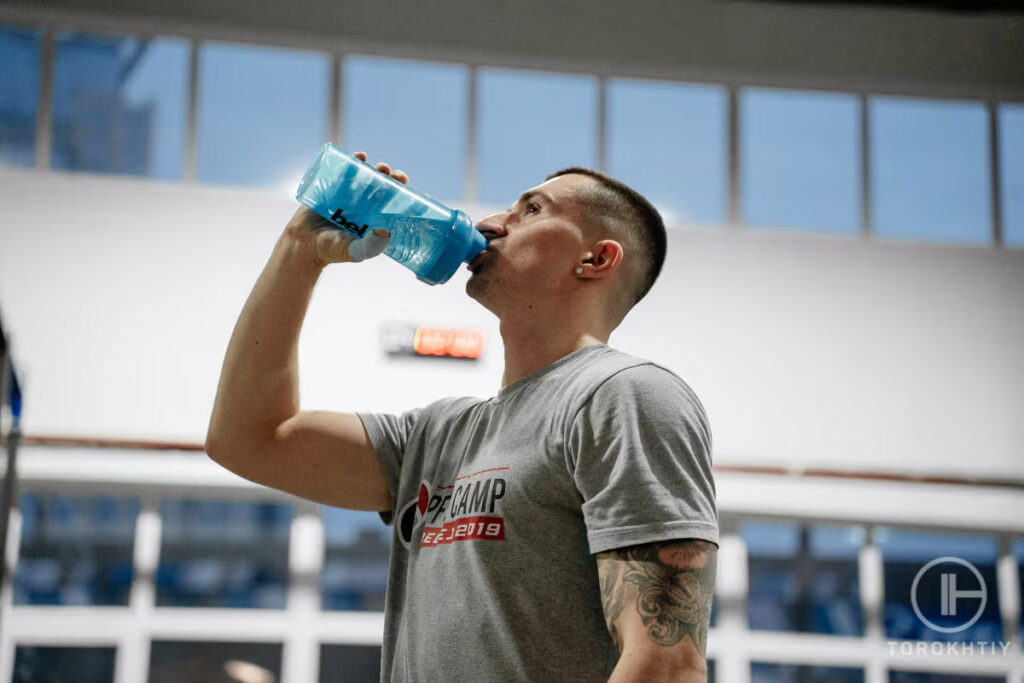
7 Things To Do After Running A Half Marathon
After finishing the half marathon, take a moment and be proud of yourself. The achievement is great since you’ve had no prior training. Let’s discuss your post-marathon recovery!
1. Drink A Lot Of Water
The number one priority after finishing the half marathon should be rehydrating yourself. Aim to drink about 16 to 20 ounces per pound lost during the race. Also, if not water, aim to intake an electrolyte beverage right after finishing the race.
2. Stretch Your Legs
Prioritize stretching after the race, and pay special attention to hamstrings and quads to improve your blood flow to the area.
3. Wear Compression Socks
Consider wearing compression socks, which prevent blood from pooling into the lower extremities. Look for socks that come up to the knee and keep them on until you go to bed to prevent any swelling and lactic acid buildup.
4. Change Your Clothes
You’ll probably do this, but it’s very helpful if you plan and have someone who can bring you dry clothing to change into. Walking around in your gear means risking getting ill due to bacteria once the sweat has dried.
5. Avoid Alcohol
Alcohol is not recommended for at least 24 hours while your body returns to normal. It can negatively impact muscle recovery.
6. Avoid Fiber Foods Or Acidic
Many people can’t tolerate high-fat foods or fiber after a race. If you want to avoid gastrointestinal upset, go for an easily digestible meal.
7. Eat Carbs
The key to easy recovery from running a half marathon is to get carbohydrates within 60 minutes after a race.
Pro Tip
Take an ice bath or cold compress – if you’re up for it, an ice bath will do miracles for alleviating your muscles and improving your blood flow.
Running Coach Nike Run Club Kyiv
7 Reasons Why Should You Prepare And Train For A Half-Marathon
Even though you’ve chosen not to prepare for the half-marathon, the professional advice stays contrary. Running a half marathon without training involves many risks and negative effects, meaning your physical health and running form may suffer long-term. Before running a half marathon, you should have a physical exam at your doctor’s to ensure running is safe for you.
The beginners are at the greatest risk here. As one, your body is not adapted to long-distance running, and yet you decide to embark on the challenging journey of half marathon training from nothing.
Intermediate and expert runners may also have consequences running a half marathon without training. The physical demands of the distance can take advantage of the untrained body, leading to stress and anxiety during the race.
Continuously, that will impact the runner’s performance, and it can lead to physical and mental burnout. Additionally, this can affect your whole running routine and mindset.
Let’s discuss the main reasons why training for a half marathon is important:

1. Injury Prevention
With training, you will adapt your body to running, which will prevent common overuse injuries. As you gradually adapt your body to running, you’ll fortify your muscles and joints, creating a defense against injuries.
2. Strong Mentality
Training will build mental resilience by exposing you to different challenges during the practice run. The training process makes you trust your body and its running capabilities.
3. Shifting Your Focus From Outcome To Success
By concentrating on success as a process instead of one endpoint, you’ll start to enjoy your resilience and have more motivation. That way, you’ll be more satisfied in pursuing your half-marathon goals.
4. You Will Improve Your Endurance
The training process prepares you for the race and improves your overall fitness state. With the long weeks fulfilled by everyday training, you’ll find yourself in a much better state, and increase your endurance.
5. Time Management Skills
You will improve your time management capabilities because you must stick to your training days and keep a consistent running schedule. It helps create a discipline that may benefit you in many other areas of your life.
Running Time Calculator: Half-Marathon Time Estimator
Our running time calculator employs a formula considering factors such as distance, gender, training level, and age. Utilize it to estimate the approximate time needed to cover your desired half-marathon distance.
Running Time Calculator
Result:
6. Goal Setting
The half-marathon training will help you become better at your goal-setting ability. Once you’ve set your goal, you’ll feel more determined to achieve it. Half-marathon goals include running a certain distance, completing challenging workouts, or maybe beating a personal record.
7. Learning About Recovery
By preparing for a half-marathon, you’ll have to learn more about running and the importance of recovery. You’ll learn about the importance of rest days, stretching, nutrition, and foam rolling.
FAQ
How Do You Run A Half Marathon Without Injury?
Running a half marathon without injury is possible if you’ve taken the proper precautions and done enough preparations. It can be going through a physical exam, wearing the right shoes, and not forcing yourself during the run.
How Many Miles Should I Run A Week For A Half Marathon?
Mostly, runners begin their half marathon training by running 15 miles per week or 24.14 kilometers. Gradually, the distance is increased up to 30 miles or more per week.
How Many Weeks Does It Take To Train For A Half Marathon?
The average time to train for a half marathon is 2-3 months of consistent practice. The time can increase if you’re a beginner, or even an intermediate runner.
conclusion
Running a half marathon without training is certainly possible, but not easy at all. Listening to your body, setting your goals right, and watching your pace are essential for crossing the finish line. On the other hand, you need to understand the risks of this approach and the importance of proper training for success.
Have you run a half marathon without training or planning to do it? Share your opinion and plans with us in the comment section below!
Also read:
References:
- Pantelis T Nikolaidis , Ivan Ćuk , Beat Knechtle, “Pacing of Women and Men in Half-Marathon and Marathon Races”, “National Library Of Medicine”, https://pubmed.ncbi.nlm.nih.gov/
- Ana Ogueta-Alday, Juan Carlos Morante, Josué Gómez-Molina, Juan García-López, “Similarities and differences among half-marathon runners according to their performance level”, “National Library Of Medicine”https://pubmed.ncbi.nlm.nih.gov/
- Elizabeth Gardner, Michael Medvecky, Christina Allen, “Running Injuries”, “Yale Medicine”, https://www.yalemedicine.org/
- Joseph J Knapik, Robin Orr, Rodney Pope, Tyson Grier, “Injuries And Footwear (Part 2): Minimalist Running Shoes”, “National Library Of Medicine” https://pubmed.ncbi.nlm.nih.gov/
- “Training for a half marathon”, “Cancer Research UK”, https://www.cancerresearchuk.org/
- Photo by RUN 4 FFWPU, Pexels, photos by Torokhtiy Media Team
Why Trust Us?
With over 20 years in Olympic weightlifting, strength training, nutrition coaching, and general fitness our team does its best to provide the audience with ultimate support and meet the needs and requirements of advanced athletes and professional lifters, as well as people who strive to open new opportunities and develop their physical capabilities with us.
By trusting the recommendations of our certified experts in coaching, nutrition, and sports training programming, as well as scientific consultants, and physiotherapists, we provide you with thorough, well-considered, and scientifically proven content. All the information given in the articles concerning workout programming, separate exercises, and athletic performance, in general, is based on verified data.
The product testing process is described in more detail here.
Oleksandr is a running coach and member of the Nike Run Club coaching team for 8 years. A participant in national and international competitions at distances from one kilometer to the ultra trail. Owner of mountain trail running camps. Nowadays Oleksandr is responsible for creating running training programs for athletes of various levels, coaching personally offline and online, conducts trail running camps in the mountains, participates in competitions.



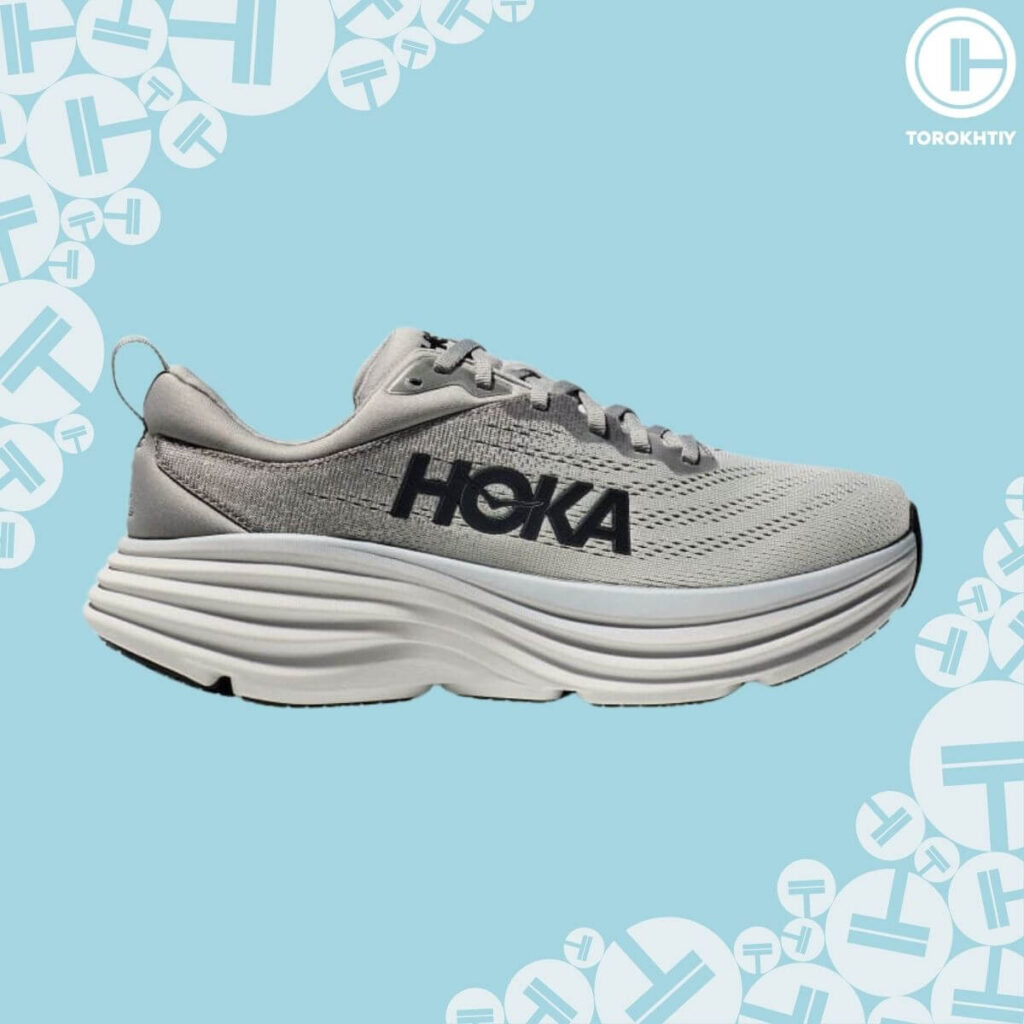
Still have questions after reading our article? Unlock your full potential by engaging with our experts and community! Don’t hesitate — leave a comment below and Oleksandr Zagrebelnyi will provide a personalized answer and insights to help you reach your goals.